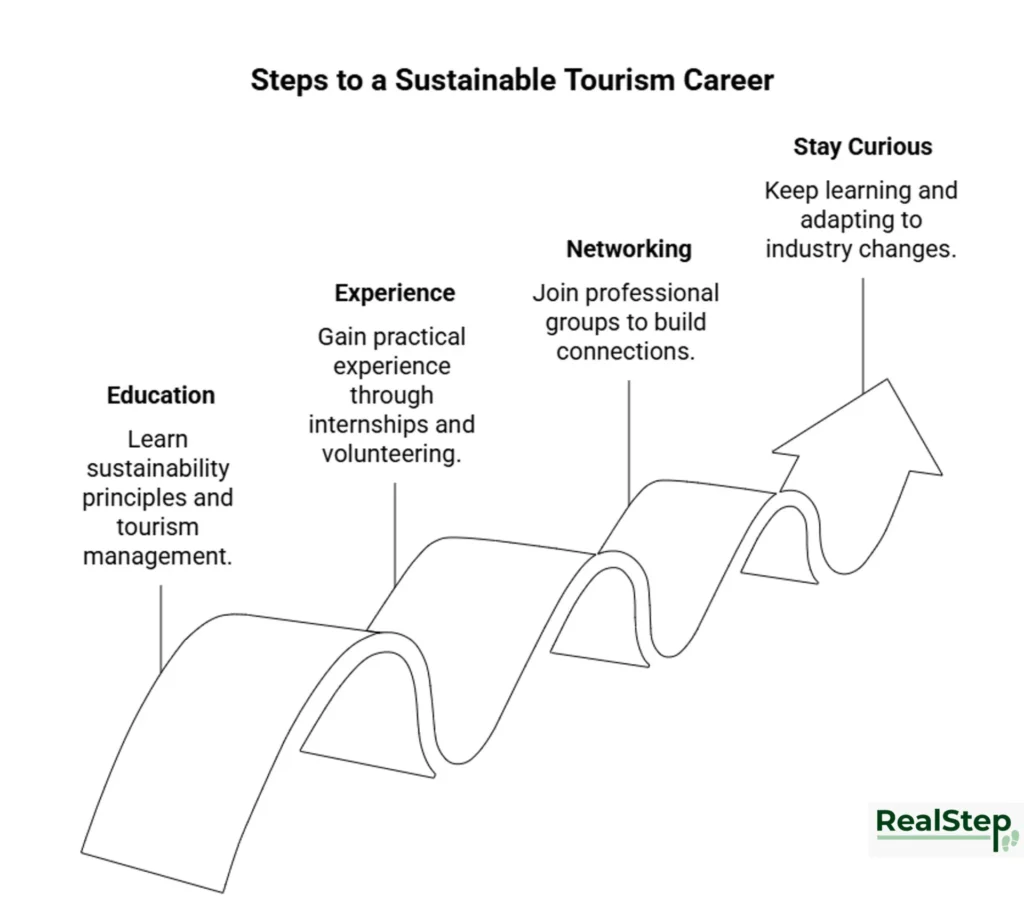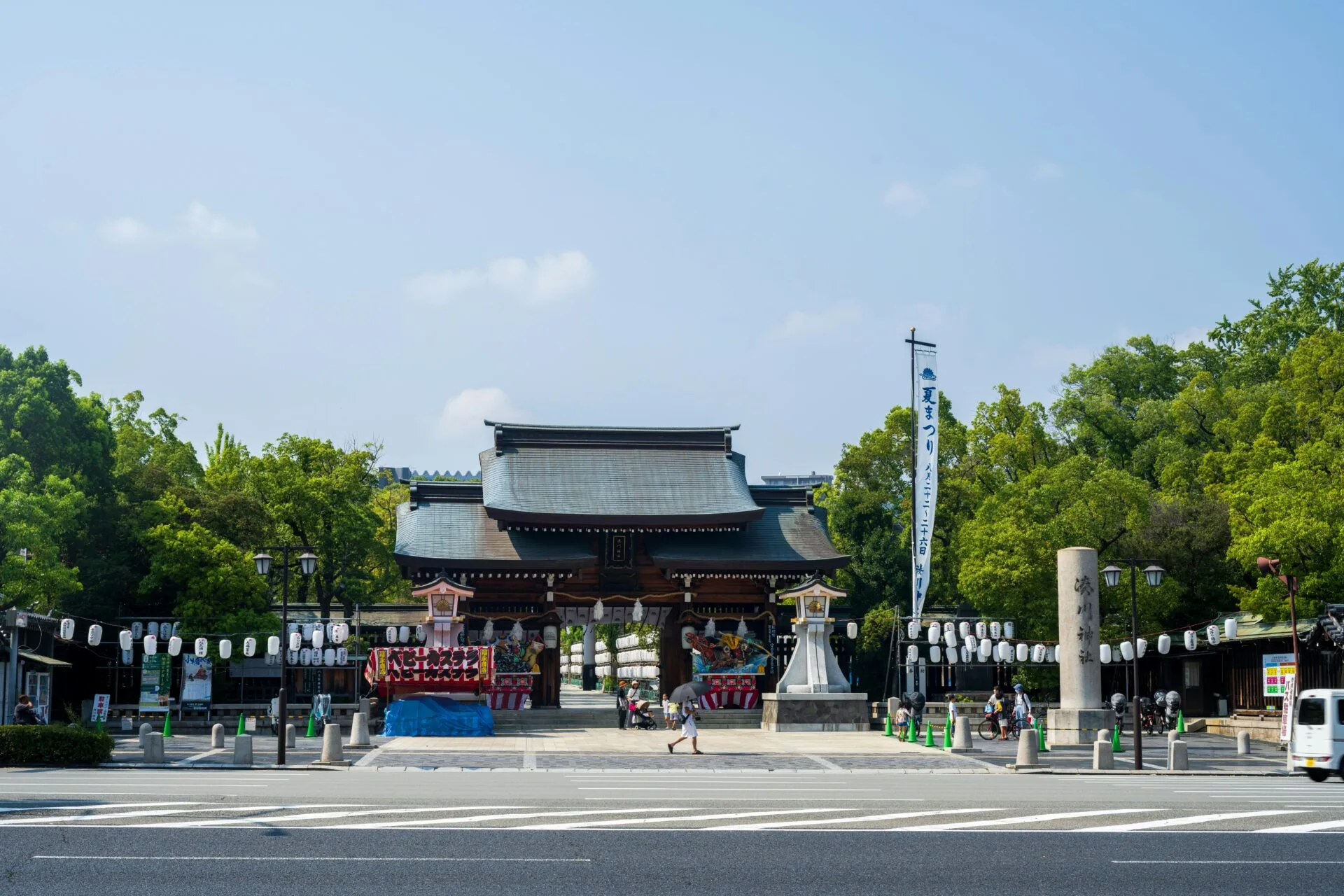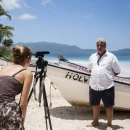If you’re passionate about travelling but care also deeply about protecting the environment, choosing a career in sustainable tourism might be the perfect match. Working in this field means being part of a sector that celebrates exploration while actively reducing its negative impact on the environment, cultures, and communities. In other words, sustainable tourism careers give you the opportunity to see the world while protecting it at the same time.
Sustainable tourism is all about balance. It aims at visiting new places while minimizing negative environmental, social and economic negative outcomes whilst maximizing the benefits for local communities. The objective is to protect cultural heritage, support local economies, and preserve natural resources for future generations.
The UN Environment Programme (UNEP) and the World Tourism Organization (UNWTO) define sustainable tourism as
tourism that takes full account of its current and future economic, social, and environmental impacts, addressing the needs of visitors, the industry, the environment, and host communities.
In simpler terms, sustainable tourism is about travel that works for everyone: the planet, the people, and the economy.
These three pillars guide not only travelers but also professionals who build their careers in sustainable tourism.
The sustainable tourism industry is way broader than most people can imagine. It’s not just about working in eco-lodges or guiding tourists through rainforests. Today, sustainable tourism offers a wide variety of roles, from hands-on fieldwork to behind-the-scenes management, communications, or policy design.
Here are some of the main sustainable tourism opportunities available today.
Many people get in touch with sustainable tourism through ecotourism, a niche focused on natural areas. Working in ecotourism means combining adventure with purpose. You might guide travelers through marine reserves, manage conservation projects in national parks, or coordinate community-based tourism programs.
Common roles include :
Careers in ecotourism are incredibly diverse. It goes from marketing sustainable destinations to managing field research programs. You don’t necessarily need a biology degree; communication, management, or hospitality skills are often just as valuable.
Sustainable destination management is one of the most dynamic and strategic branches of sustainable tourism. It focuses on how a region, city, or country can welcome visitors while protecting its environment, culture, and local communities.
Sustainable destination management entails various types of positions but most times, the goal for anyone working in this area is to help tourism destinations balance tourism growth with environmental and social preservation. They work for governments, NGOs, or private consultancies to implement sustainability plans, such as reducing waste, managing visitor flows, and protecting heritage sites.
This role often requires strong project management and policy knowledge. Which is great for people with backgrounds in public administration, environmental studies, or business.
Eco-hotels and sustainable lodges are booming worldwide. These establishments are designed to reduce waste, energy consumption, and water use while supporting local employment and culture.
As a sustainable hospitality manager, your mission is to ensure that every aspect of a traveler’s stay is both enjoyable and environmentally responsible.
For those coming from traditional tourism or hospitality backgrounds, this is one of the most direct ways to pivot toward a sustainable tourism career.
A huge part of sustainable tourism lies in raising awareness. Tour guides, photographers, and digital influencers play a key role in advocating for better behaviours among travelers.
By inspiring travelers to respect and protect the destinations they visit, these professionals become ambassadors of change.
For those more drawn to strategy and data than fieldwork, sustainable tourism consulting is an excellent path. Consultants and researchers help various kinds of actors meet international sustainability standards such as the Global Sustainable Tourism Council (GSTC) criteria.
Their main tasks are conducting impact assessments, rewarding good practices and advising governments on green tourism policies.
A background in environmental science, economics, or management is often helpful here. Many consultants eventually move into international organizations or start their own consulting businesses.
In recent years, the rise of impact-driven startups has opened new tourism career opportunities. These businesses often operate as social enterprises, combining profit with purpose.
Community-based tourism empowers local residents to host visitors and share their culture sustainably. Projects like these create fair income opportunities while strengthening local identity.
This branch of sustainable tourism emphasizes inclusivity, gender equality, and respect for indigenous knowledge, turning travel into a true tool for empowerment.
One important asset of sustainable tourism is that it encompasses a large amount of backgrounds. You don’t need to be a biologist or an environmental scientist to work on sustainable tourism. Employers are looking for a mix of technical, social and creative skills, including interpersonal and communication skills, teamwork, project management or knowledge of sustainability principles.
While many positions require a bachelor’s degree in tourism, environmental studies, business, or social sciences, experience and passion are just as valuable. Volunteering, interning, or joining local sustainability initiatives can help you build your network and credibility.
If you’re wondering how to enter this field, here’s a simple roadmap. Educate yourself about sustainability principles and tourism management. Gain experience by applying for sustainable tourism internships, volunteering with NGOs, or working in eco-lodges.
Build a network by joining professional groups such as the Global Sustainable Tourism Council or The International Ecotourism Society. Choose organizations that align with your values and stay curious, because the sector evolves quickly.

The tourism industry is transforming. Sustainability is becoming one of the key drivers of growth in the coming decade. Travelers are increasingly choosing eco-friendly experiences, and destinations are recognizing the need to protect their natural and cultural assets.
As a result, sustainable tourism opportunities are growing across all sectors. Whether you want to manage a lodge, design eco-tours, or advise on environmental policy, there’s space for your skills and creativity.
In the end, working in sustainable tourism isn’t just a job : it’s a mission. It’s about reshaping the way people travel and ensuring that every trip contributes to a better future for both the people and the planet.
All in all, sustainable tourism careers offer a meaningful path for anyone who dreams of working blending travel, culture, and environmental responsibility. Whether through careers in eco-lodge management, consulting, or innovative social enterprises, these roles create bridges between curiosity and conservation, proving that you can have a positive impact in your career.
Realstep offers the possibility to participate in a sustainable tourism internship with the focus being on ecotourism. The intern will have the possibility to participate and assist in various activities, most of these being nature explorations by bike, kayak, sailboat or on foot.
More information on the program here!
The positions are many and varied. It is possible to find yourself working in guesthouses, national parks, on cruises, with nature guides and hiking operators.
Take this opportunity to gain professional experience while gaining university credits, in a new cultural environment.

This program is the perfect opportunity to travel to Australia, and at the same time, gain valuable professional experience in the world of sustainable tourism. The program is based in a hostel, where the tasks are mainly in the field of hospitality, however if the candidate shows commitment and motivation, these can broaden quickly: social media, marketing, event planning, etc.
More information on the program here!
You will have the possibility to participate in local excursions in order to familiarize yourself with the region, as well as the hostel’s daily events in order to better promote them to guests. This program is a great opportunity to broaden your cultural experiences while discovering a new place.

In this program the candidate will have the opportunity to work in the Canadian Rockies region of Banff National Park. The focus is on the hospitality and food service sectors, as it is a seasonal job in ski resorts, lasting 3 months at first, with the possibility of it being extended if all parties are satisfied with the situation.
More information on the program here!
This program is the perfect opportunity to improve your English and work in an international environment.

Did you like this article ?
Share it on social media!
In this article :
Similar items
Our latest articles


